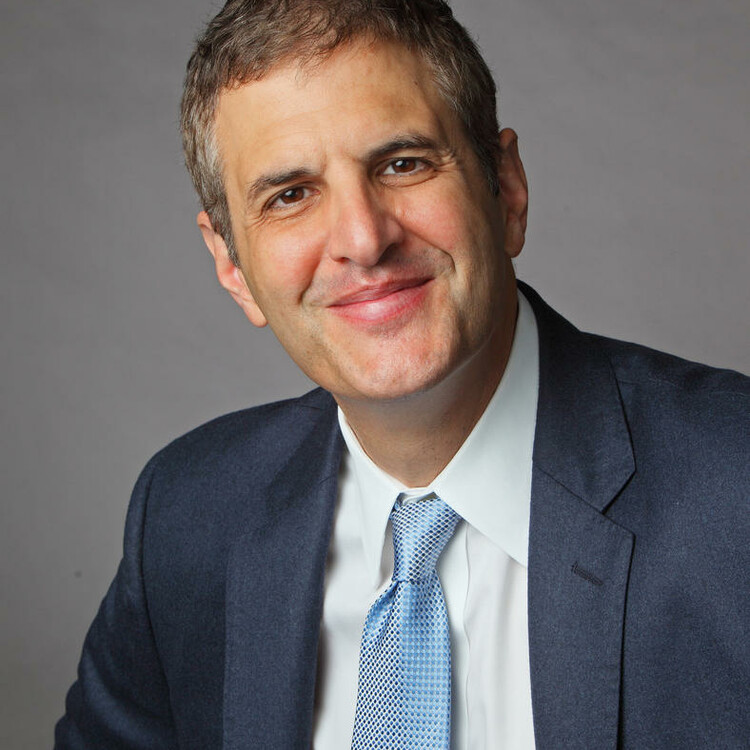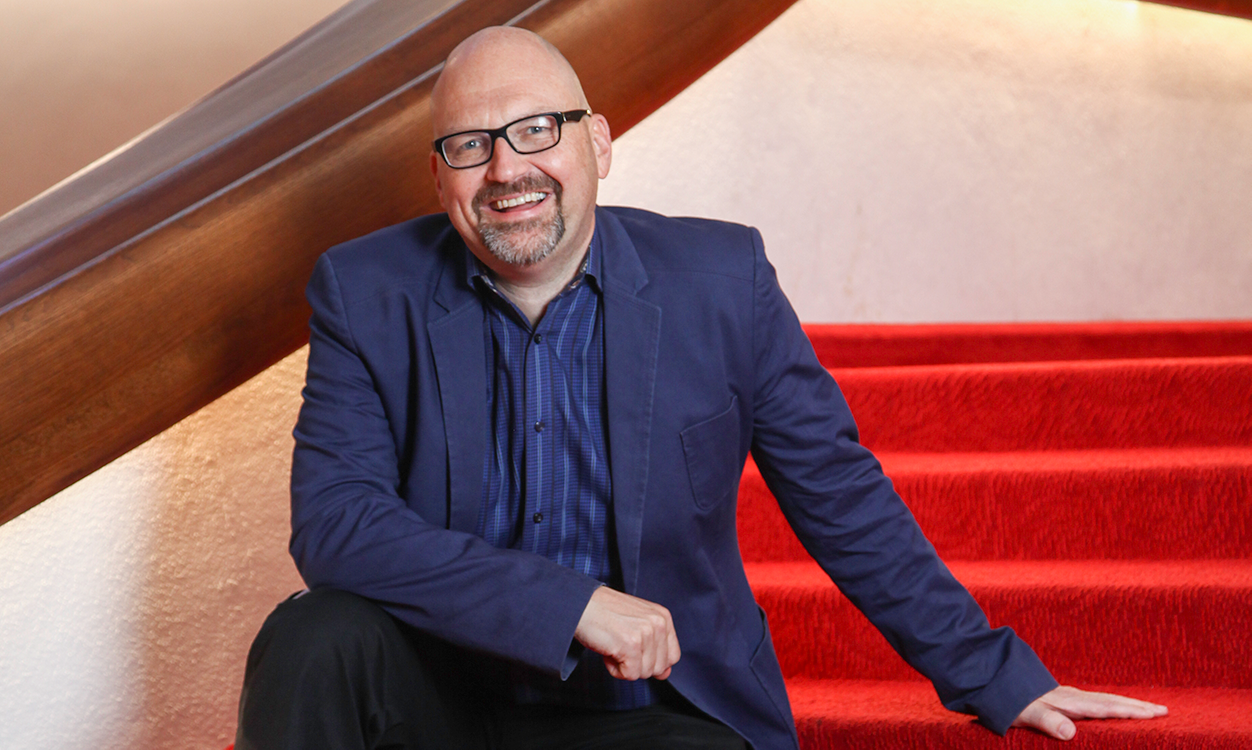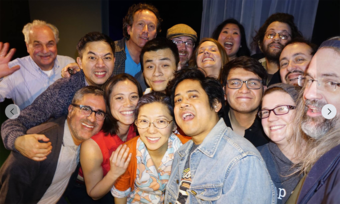Joe Haj: I read with such interest that New York Times article about all the new artistic directors in the country. While I’ve been artistic director at the Guthrie Theater for several years, you’re part of this wave, having recently been appointed the new artistic director of Houston’s Alley Theatre. What’s that like?
Rob Melrose: It’s a fabulous change for the theatre, but of course there were leaders like you, Emily Mann, Bill Rauch, and Oskar Eustis who were opening up their theatres to more diverse work earlier on. I got a chance to see what all four of you were doing up close, and I’m excited about this next wave. We’re carrying a torch that you guys lit.
Joe: There have been torches carried in our field for a half century—we all stand on the shoulders of a number of giants. It’s interesting to look at this wave of leaders, mostly in the American theatre, because for so many years companies have chosen their artistic directors from the ranks of freelance directors. And now several of these appointments are folks who have been largely producers, which of course is an artistic and creative effort. But it’s different, and I’m very interested to see what that means for the field, how these individuals choose to lead their theatres.
Rob: I read Maria Goyanes and Stephanie Ybarra’s HowlRound article, part of this Changeover series, where they said, “We think it’s great for producers to run theatres, because when the artistic directors are in rehearsal, they’re really out of commission for a while, for the regular goings-on.” But, as the artistic director who is also directing the first two shows of my season, and a third show later on, that’s the way I’m going to get to know the acting company and everybody who works there. That’s my best foot forward. I’m meeting everybody and saying, “Hi, how are you doing? It’s great to know you.” I’m talking about my vision, but I’m also collaborating with people, solving problems with people. I really feel there’s still a case to be made for the active director in rehearsal being the artistic director.
Joe: I think we have to be a little careful. When I see artistic directors who have a five-show season directing three of the shows, I think: nobody’s that interesting, nobody. I don’t care how beautiful and thrilling a maker you are, your community deserves and wants a variety of aesthetics and voices and approaches. I don’t want a season that looks too much like me. When other directors are hired to come make plays, I give notes, but I don’t meddle. If you meddle too much, all the work looks like yours, whether or not you made it. And that’s not healthy either.
Rob: That’s something I’ve always loved about working for you at your theatres, both at PlayMakers and at the Guthrie. You provided a canvas, and you were a great ally and someone with an eye on the process who I could bounce ideas off of and who had insights, but you weren’t trying to make it your show. I’ve had that experience too at other theaters, it’s no fun.
Joe: And the outcomes aren’t good. Switching topics, I read something recently—I actually don’t remember if it was in relation to Nataki Garrett’s appointment at the Oregon Shakespeare Festival (OSF) or maybe Stephanie or Maria’s recent appointments, but somebody characterized one of them as fearless and confident. What is your view on those as value propositions? I’m not sure that either of those things are actually characteristics of outstanding leadership.
Rob: It’s a good question.
Joe: As an artistic director I’ve been fooled by it any number of times.
Rob: Confidence?
Joe: Confidence. Somebody comes and sits in the office and says, “Hey, Joe, here’s my idea for Saroyan’s The Time Of Your Life.” And they talk, and you think, “My god, I’ve never heard anything so smart. That’s the best way to approach that, we have to hire this person immediately.” I then very often find the gap between the confidence and the competence is fairly significant. I’ve really come to the conclusion that confidence is just a personality trait. It’s neither good nor bad in and of itself.
Rob: It’s way overvalued in the United States. In Europe people with too much confidence are not trusted and are even mocked. They instead value someone who is curious and smart and asks questions. In Europe they also have a longer rehearsal process, so they can hire many more directors who start the process not quite sure of where they’re going; and there are a lot of brilliant directors. Having conversations with European directors you get much less, “I’ve got it all figured out” and much more, “I’m curious about this. This would be interesting.”
Joe: I think confidence and competence are simply non-corollary. They simply have nothing to do with one another. There are very confident people who are also very competent. And many who are not. And then there are people without much confidence who are spectacular. And of course some who are not. It’s much like fearlessness. I don’t know that being fearless is a value. The real question is, “Who are you when scared?”
I don’t know that being fearless is a value. The real question is, “Who are you when scared?”
Rob: You were an actor for many years, so you know from the audience’s perspective that you look fearless. But you know from being backstage that feeling of, Oh my god I’m going to be on stage in front of seven hundred people in a second. I don’t know anybody who’s fearless.
Joe: You and I talked so much while you were going through the search process. But I haven’t talked to you much since, and obviously you’ve been busy. I expect there are any number of things that are precisely as you expected, and I wonder what the things are that were less expected. What are the challenges that are maybe greater than expected and maybe vice versa, what you thought would be hard that has proven to be, “Oh, no, I’ve got this.”
Rob: You gave me the best piece of advice going into my interview: “You’ve got to figure out why Houston and why the Alley Theatre.” Not just why I wanted to run a big LORT theatre. I went out a day early so I got to see Houston, and it just so happened to be their theatre district open house. So in one day I got to do a tour of the Alley, saw their production of The Mousetrap, and went to a free symphony, a mini opera performance, and a mini-ballet performance. I got to see the best of Houston’s arts in one day and got a sense of the city’s diversity.
Houston’s been named the most diverse city in America, and it’s something they’re very proud of. The Alley itself has a ways to go. It’s not the most diverse theatre in America. But I think that there’s a tremendous opportunity for the Alley to reflect what we all love about Houston and for it to own the fact that it’s Houston’s LORT theatre, that it can really become a leader in this new generational push. The cool thing is I don’t feel like I’m pushing against anything, or that my ideas are unwelcome. I feel like the board, the staff, and the artists all long for an Alley Theatre that is more diverse and reflects the diversity of Houston better.













Comments
The article is just the start of the conversation—we want to know what you think about this subject, too! HowlRound is a space for knowledge-sharing, and we welcome spirited, thoughtful, and on-topic dialogue. Find our full comments policy here